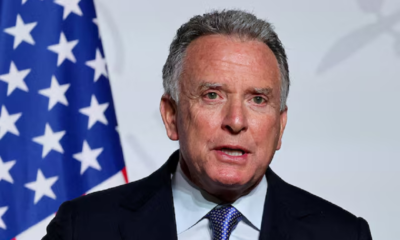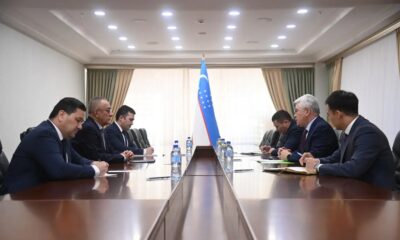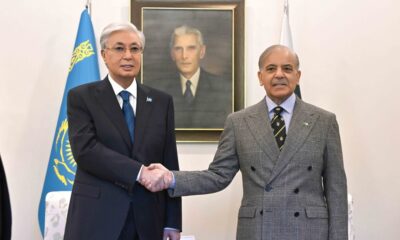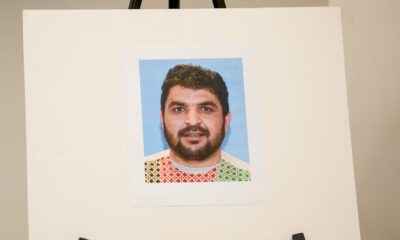Latest News
MSF withdraws from Dasht-e-Barchi after deadly attack on maternity ward
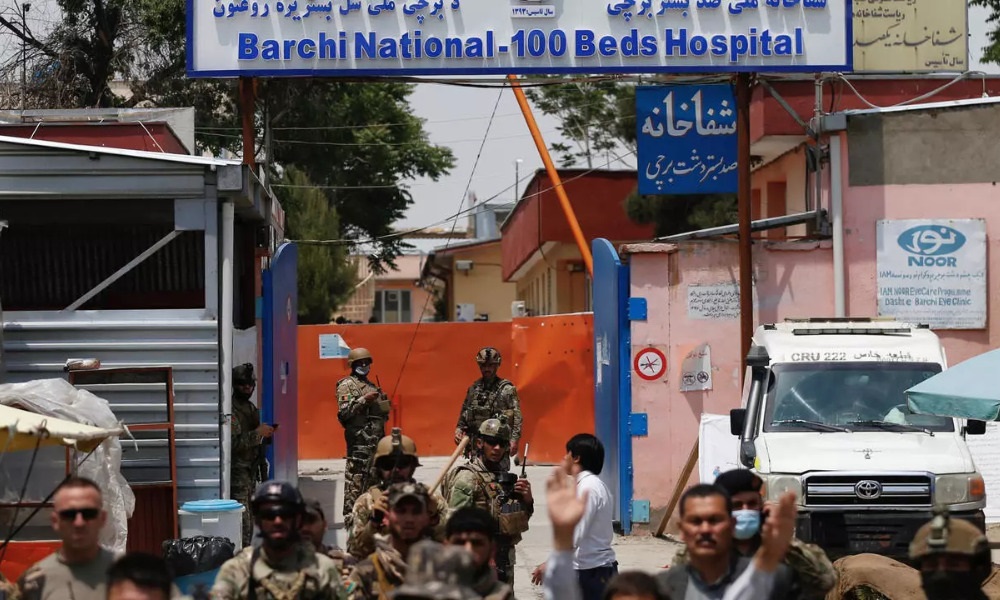
The international medical humanitarian organization Doctors Without Borders/Médecins Sans Frontières (MSF) announced that it has decided to end activities and withdraw from Dasht-e-Barchi hospital in Kabul, the MSF said.
In a statement released on June 15, the organization said that the decision was taken following the brutal attack on our maternity wing on 12 May, in which 16 mothers were systematically shot dead. An MSF midwife, two children aged 7 and 8, and six other people present at the time of the attack were also killed.
Dasht-e-Barchi #Afghanistan – While we don’t know who was responsible for the attack, we know enough to realise that patients, health workers and humanitarian activity were targeted, and that similar attacks may occur again in the future.https://t.co/gsZc6NvPxG
— MSF International (@MSF) June 15, 2020
“The decision comes with the understanding that while no information has emerged about the perpetrators or motive of the assault, mothers, babies, and health staff were the deliberate targets of the attack and that similar attacks may occur in the future,” the organization said.
“We have to accept reality… to remain would mean to factor in such loss of human lives as a parameter of our activity, and this is unthinkable,” said Thierry Allafort-Duverger, MSF Director-General.
“We were aware that our presence in Dasht-e-Barchi carried risks, but we just couldn’t believe that someone would take advantage of the absolute vulnerability of women about to give birth to murder them and their babies,” says Thierry Allafort-Duverger, MSF Director-General. “But it did happen.”
“Today, we have to accept reality: higher walls and thicker security doors won’t prevent such horrific assaults from happening again,” says Allafort-Duverger. “To remain would mean to factor in such loss of human lives as a parameter of our activity, and this is unthinkable.”
MSF further said that it was looking into ways to support local initiatives aimed at improving access to healthcare as the security conditions have forced the organization to withdraw from Dasht-e-Barchi.
The end of MSF’s activities in the maternity wing of Dasht-e-Barchi hospital is a necessary but painful decision, fraught with consequences for more than one million people who live in the area. Most of them are from the Hazara community, a historically marginalized and poor population, many of whom were displaced by decades of conflict.
Médecins Sans Frontières withdraws from Dasht-e-Barchi.
Following the brutal attack of 12 may, which killed 16 mothers and a midwife, @MSF has announced today its decision to end activities and withdraw from Dasht-e-Barchi in Kabul.
(1/3)
— MSF Afghanistan (@MSF_Afghanistan) June 15, 2020
MSF has been working in Dasht-e-Barchi in collaboration with the Ministry of Public Health since November 2014, providing free-of-charge maternity and neonatal care in one of the most densely populated areas of Kabul.
Latest News
Afghanistan facing deepening hunger crisis after US Aid Cuts: NYT reports

Afghanistan has plunged deeper into a humanitarian crisis following sharp cuts to U.S. aid, with child hunger at its worst level in 25 years and nearly 450 health centers forced to close, the New York Times reported.
According to the report, U.S. funding — which averaged nearly $1 billion a year after the Islamic Emirate takeover in 2021 — has largely evaporated following the dismantling of the U.S. Agency for International Development (USAID) under President Donald Trump.
The World Food Program (WFP) estimates that four million Afghan children are now at risk of dying from malnutrition.
The aid cuts have hit rural areas particularly hard, leaving families without access to basic health care. In Daikundi province, the closure of local clinics has been linked to preventable deaths during childbirth and rising child mortality.
Nationwide, more than 17 million Afghans — about 40 percent of the population — face acute food insecurity, with seven provinces nearing famine conditions, the report said.
The crisis has been compounded by mass deportations of Afghan refugees from Iran and Pakistan, deadly earthquakes, and ongoing drought. While other donors and Afghan authorities have tried to fill the gap, their efforts fall far short of previous U.S. assistance, the NYT reported.
Humanitarian groups warn the impact will be long-lasting. Researchers cited by the New York Times say sustained malnutrition could damage an entire generation, with consequences that cannot be reversed even if aid resumes in the future.
However, the spokesperson of the Islamic Emirate, Zabihullah Mujahid, considers the findings of this report to be inaccurate and said that the situation in Afghanistan is not as dire as it is portrayed, and that the country’s situation is moving toward improvement.
“In our view, this report is not correct. We have gone through difficult times and experienced problems such as a humanitarian crisis. At one point, we suffered very heavy casualties and our people faced many difficulties, but now the situation of most people is improving. The country’s economy is moving in a positive direction, to some extent job opportunities have been created for unemployed people, efforts are still ongoing, and Afghanistan’s economic resources have been revived,” said Mujahid.
Latest News
Uzbekistan, Kazakhstan discuss cooperation on Afghanistan
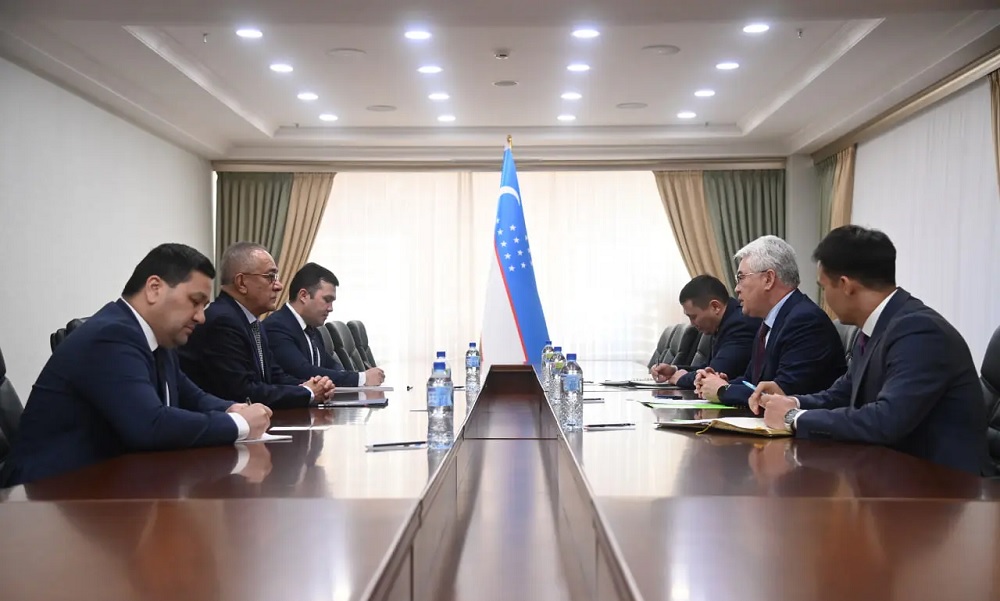
Ismatulla Irgashev, Special Representative of the President of Uzbekistan for Afghanistan, met on Tuesday with Beibut Atamkulov, Kazakhstan’s Ambassador to Uzbekistan, to discuss bilateral cooperation on Afghanistan.
The two sides highlighted their commitment to maintaining regular dialogue aimed at addressing the Afghan issue, according to a statement issued by Uzbekistan foreign ministry.
Atamkulov praised Uzbekistan’s efforts to help shape a unified regional position on Afghanistan.
The meeting also included discussions on involving Afghanistan in regional connectivity initiatives, particularly the implementation of the Trans-Afghan railway project.
Officials described the meeting as constructive and reaffirmed mutual interest in further developing practical cooperation between Tashkent and Astana.
Latest News
Pakistan, Kazakhstan stress importance of stability in Afghanistan, support regional projects
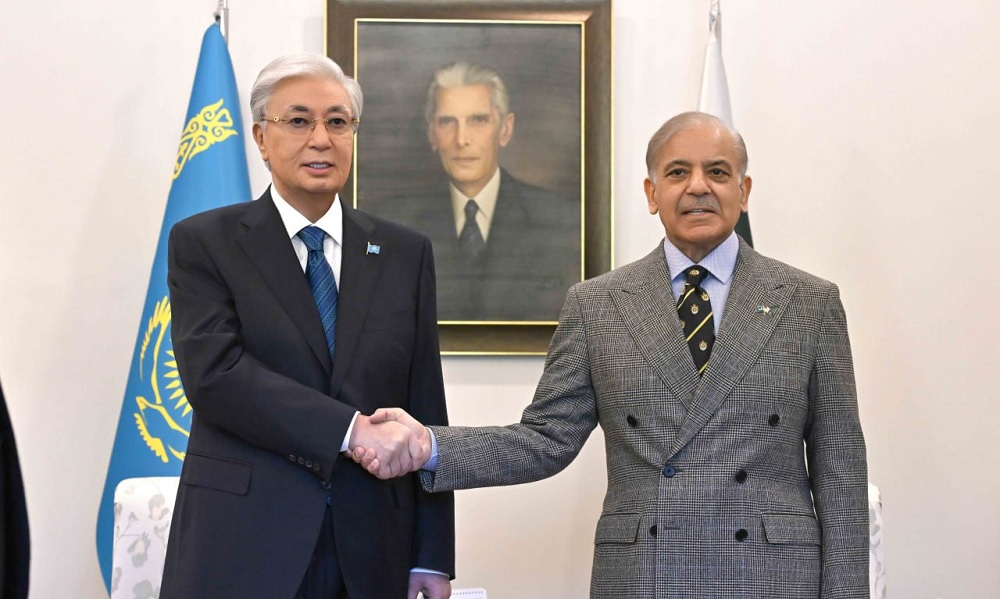
Pakistan and Kazakhstan have highlighted the importance of peace and stability in Afghanistan, calling it a key requirement for advancing regional cooperation. The remarks came in a joint statement issued after Kazakh President Kassym-Jomart Tokayev’s visit to Islamabad.
The two leaders stressed that Afghan territory must not be used for activities that threaten the security of other countries. They also agreed that integrating Afghanistan into regional economic and connectivity initiatives would benefit both the Afghan people and the wider region.
Islamabad and Astana reaffirmed their commitment to expanding international multimodal transport corridors linking the two countries, including the Kazakhstan–Turkmenistan–Afghanistan–Pakistan, Kazakhstan–Uzbekistan–Afghanistan–Pakistan, and Kazakhstan–Kyrgyzstan–China–Pakistan routes.
Prime Minister Shehbaz Sharif welcomed President Tokayev’s proposal to link Central and South Asia through the Trans-Afghan railway corridor. Both sides instructed their relevant authorities to study the development of the Kazakhstan–Turkmenistan–Afghanistan–Pakistan railway line.
-

 Sport4 days ago
Sport4 days agoAFC Futsal Asian Cup: Afghanistan to face Iran in crucial Group D clash
-

 Sport3 days ago
Sport3 days agoAFC Futsal Asian Cup 2026: Final eight confirmed
-

 Sport3 days ago
Sport3 days agoAfghanistan in new kit for T20 World Cup warm-up against Scotland
-

 Sport4 days ago
Sport4 days agoIran see off spirited Afghanistan to finish top of Group D
-

 Sport2 days ago
Sport2 days agoJapan trumps Afghanistan 6-0 in AFC Futsal Asian Cup quarter-final
-

 Sport1 day ago
Sport1 day agoHosts and heavyweights advance as AFC Futsal Asian Cup reaches semifinals
-
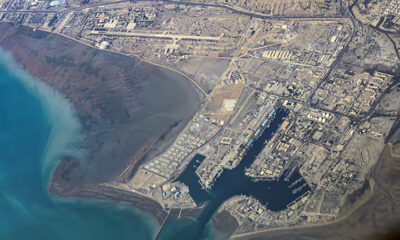
 Regional4 days ago
Regional4 days agoGas leak caused blast in Iran’s Bandar Abbas, Iranian media say
-

 International Sports3 days ago
International Sports3 days agoPakistan to boycott T20 World Cup group match against India




